|
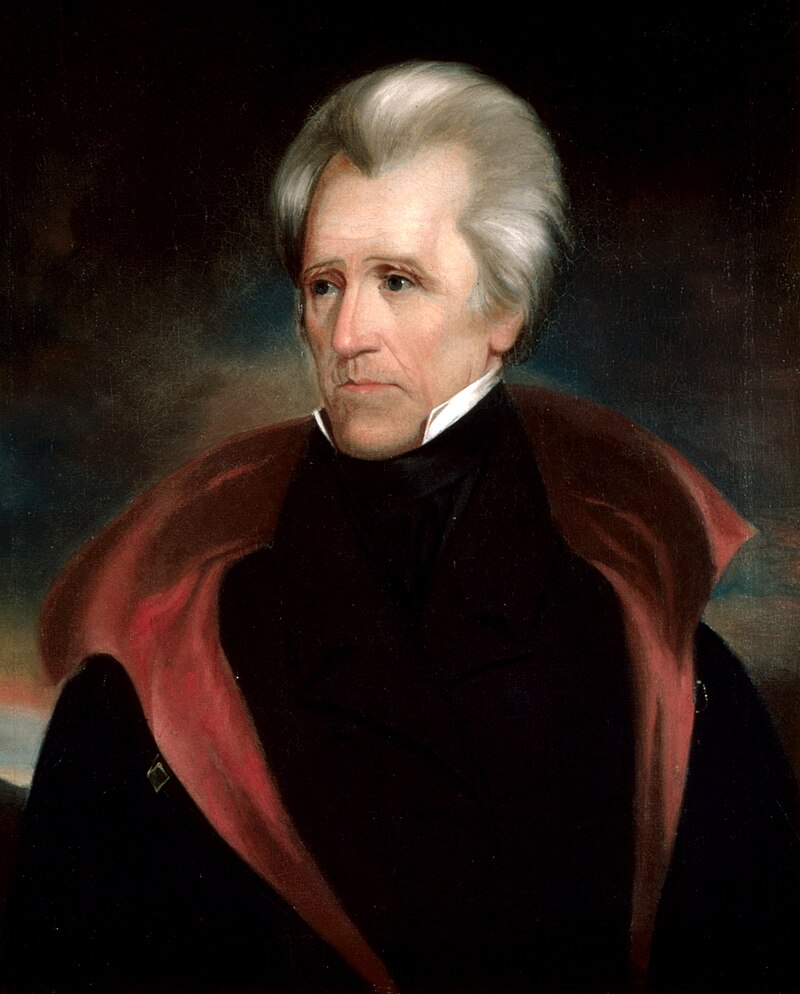
General
Andrew Jackson - 7th US President
Andrew Jackson (March 15, 1767 – June 8, 1845) was an American lawyer, planter, general, and statesman who served as the seventh president of the
United States from 1829 to 1837. Before his presidency, he gained fame as a general in the U.S. Army and served in both houses of the U.S. Congress. Often praised as an advocate for ordinary Americans and for his work in preserving the union of states, Jackson has also been criticized for his racial policies, particularly his treatment of Native Americans.
Jackson was born in the colonial Carolinas before the American Revolutionary
War. He became a frontier lawyer and married Rachel Donelson Robards. He briefly served in the U.S. House of Representatives and the U.S. Senate, representing Tennessee. After resigning, he served as a justice on the Tennessee Superior Court from 1798 until 1804. Jackson purchased a property later known as the Hermitage, becoming a wealthy planter who owned hundreds of
African-American slaves during his lifetime. In 1801, he was appointed colonel of the Tennessee militia and was elected its commander. He led troops during the Creek War of 1813–1814, winning the Battle of Horseshoe Bend and negotiating the Treaty of Fort Jackson that required the indigenous Creek population to surrender vast tracts of present-day Alabama and Georgia. In the concurrent war against the
British, Jackson's victory at the Battle of New Orleans in 1815 made him a national hero. He later commanded U.S. forces in the First Seminole War, which led to the annexation of
Florida from
Spain. Jackson briefly served as Florida's first territorial governor before returning to the Senate. He ran for president in 1824. He won a plurality of the popular and electoral vote, but no candidate won the electoral majority. With the help of Henry Clay, the House of Representatives elected John Quincy Adams in a contingent election. Jackson's supporters alleged that there was a "corrupt bargain" between Adams and Clay and began creating their own political organization that would eventually become the Democratic Party.
Jackson ran again in 1828, defeating Adams in a landslide. In 1830, he signed the Indian Removal Act. This act, which has been described as ethnic cleansing, displaced tens of thousands of Native Americans from their ancestral homelands east of the Mississippi and resulted in thousands of deaths. Jackson faced a challenge to the integrity of the federal union when South Carolina threatened to nullify a high protective tariff set by the federal government. He threatened the use of military force to enforce the tariff, but the crisis was defused when it was amended. In 1832, he vetoed a bill by Congress to reauthorize the Second Bank of the
United States, arguing that it was a corrupt institution. After a lengthy struggle, the Bank was dismantled. In 1835, Jackson became the only president to pay off the national debt. He survived the first assassination attempt on a sitting president. In one of his final presidential acts, he recognized the Republic of Texas.
After leaving office, Jackson supported the presidencies of Martin Van Buren and James K. Polk, as well as the annexation of Texas. Jackson's legacy remains controversial, and opinions on his legacy are frequently polarized. Supporters characterize him as a defender of democracy and the Constitution, while critics point to his reputation as a demagogue who ignored the law when it suited him. Scholars and historians have consistently ranked Jackson's presidency as above average, although his reputation declined in the late 20th century.
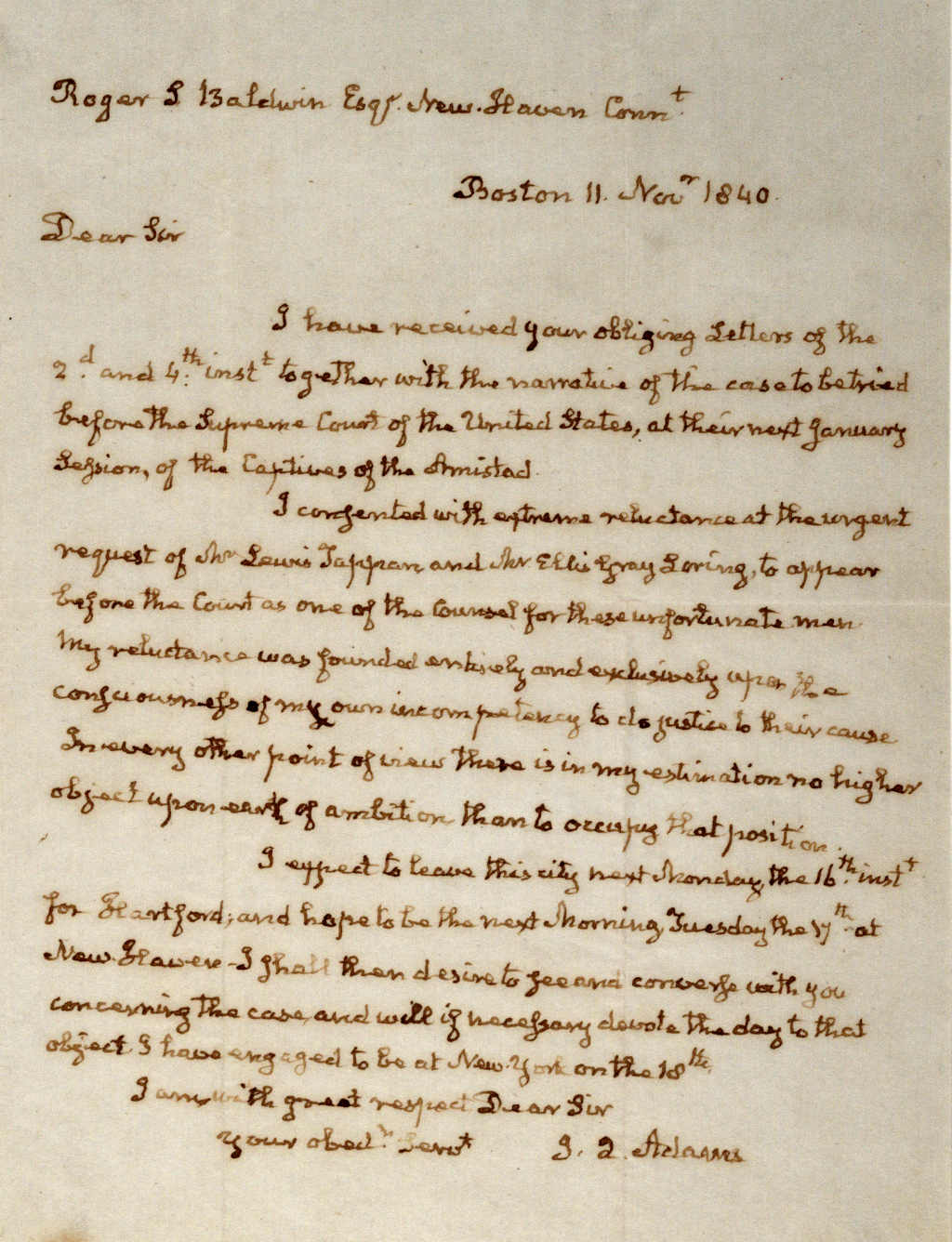
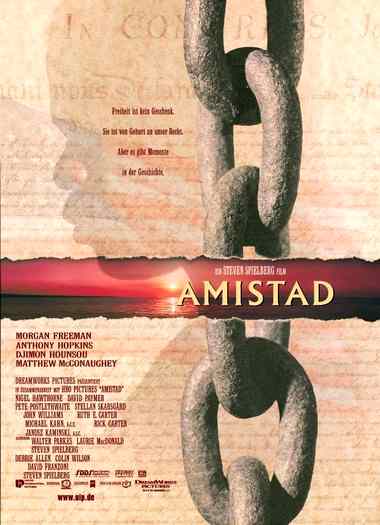
LA
AMISTAD CASE 1841
On July 1, 1839, fifty-three Africans, recently kidnapped into slavery in
Sierra Leone and sold at a Havana slave market, revolted on board the schooner Amistad. They killed the captain and other crew and ordered the two Spaniards who had purchased them to sail them back to
Africa. Instead, the ship was seized off Long Island by a US revenue cutter on August 24, 1839. The Amistad was then landed in New
London, Connecticut, where the American revenue cutter’s captain filed for salvage rights to the Amistad’s cargo of Africans. The two Spaniards claimed ownership themselves, while Spanish authorities demanded the Africans be extradited to
Cuba and tried for murder.
Connecticut jailed the Africans and charged them with murder. The slave trade had been outlawed in the United States since 1808, but the institution of slavery itself thrived in the South. The Amistad case entered the federal courts and caught the nation’s attention. The murder charges against the Amistad captives were quickly dropped, but they remained in custody as the legal focus turned to the property rights claimed by various parties. President Martin Van Buren issued an order of extradition, per
Spain’s wishes, but the New Haven federal court’s decision preempted the return of the captives to
Cuba. The court ruled that no one owned the Africans because they had been illegally enslaved and transported to the New World. The Van Buren administration appealed the decision, and the case came before the US Supreme Court in January 1841.
Abolitionists enlisted former US president John Quincy Adams to represent the Amistad captives’ petition for freedom before the Supreme Court. Adams, then a 73-year-old US congressman from Massachusetts, had in recent years fought tirelessly against Congress’s “gag rule” banning anti-slavery petitions. Here, Adams accepted the job of representing the Amistad captives, hoping he would “do justice to their cause.” Adams spoke before the Court for nine hours and succeeded in moving the majority to decide in favor of freeing the captives once and for all. The Court ordered the thirty surviving captives (the others had died at sea or in jail) returned to their home in Sierra Leone.
The
case effectively ended slavery in the deep south.
WHO
ARE THE MOST POPULAR?
Who
are the most popular United States presidents, the best known and most
hated world leaders from the USA. And how many have been assassinated,
or the subject of shooting attempts. The most famous of which must surely be a
toss up between Abraham Lincoln and John F. Kennedy in 1963.
Then,
who is the best looking, most charismatic, handsome and sexiest, to garner voter
appeal. And that may include manner of speaking as well as athletic
physique. We'd vote for Arnold
Schwarzenegger in a flash, and he did make it to Governor of
California. Probably one of the most charismatic Presidents was Barack
Obama, he could talk the hind leg off a Donkey. Why Henry Cavill does not run for President, beats us. He'd do
well, so long as he joins the right party and their politics work. And
he wears body armour in case of slip ups by his administration.
Alternatively,
politicians could start telling the truth. It could be law that
politicians who lie will be prosecuted for fraud. How about lie
detectors live during political rallies. So the public can see if they
are telling the truth when asked certain baseline questions. It might
save a few bullets in the long run.
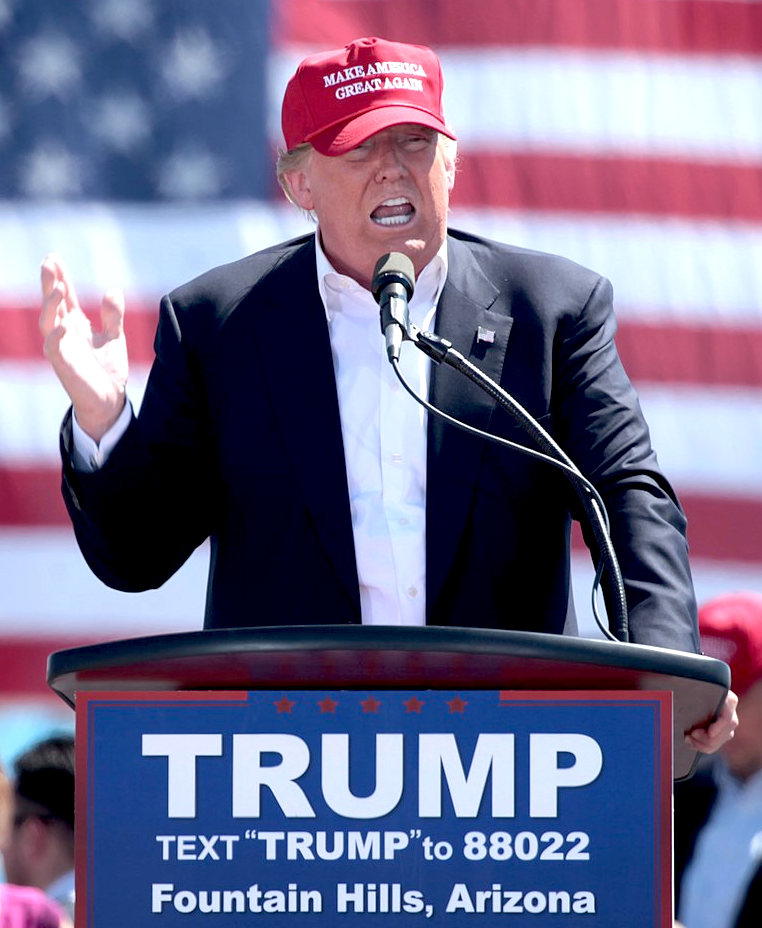
Former
US President Donald Trump, running for office again in 2024 against the
incumbent Joe Biden.
Four American Presidents have been assassinated so far, with two more
shot. The electorate voting with a rifle or pistol. Maybe. Except the
shooting of Ronald Reagan was due to the shooter, John Warnock Hinckley Jr.,
being infatuated with the actress Jodie Foster. Nothing at all to do
with politics, apparently.
In
1968 Senator Robert F. Kennedy was shot at the Ambassador
Hotel.
Like his brothers John F. Kennedy and Ted Kennedy, he was a prominent member of the Democratic Party and is an icon of modern American liberalism.
He was assassinated as he was running for president, much the same as
Donald Trump being shot in 2024.
Russian
President Vladimir
Putin has also been targeted, also his nemesis Volodymyr
Zelenskyy. As was Sir
Winston Churchill, and Adolf
Hitler in World
War Two. But these were not members of the public, these appear to
have been military operations.
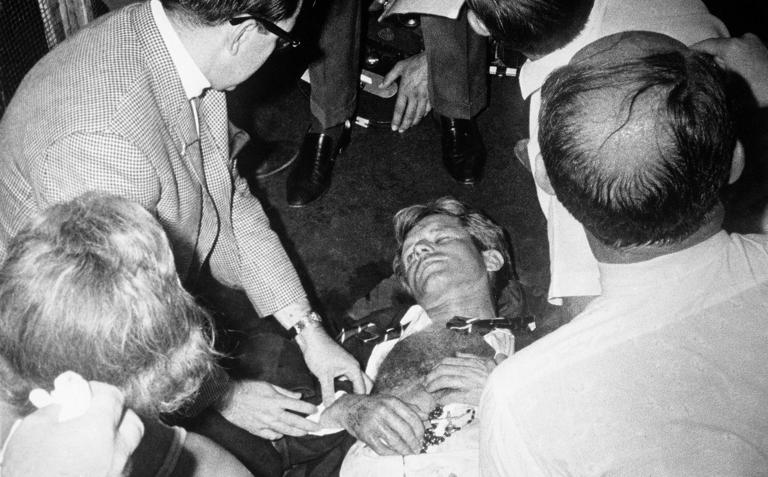
Robert
F. Kennedy (RFK) shot dead in 1968; JFK's brother.
In
many countries citizens have been far from satisfied with the lackluster
performances of their elected leaders. The latest being the landslide
victory of the British Labour
party ousting the incompetent Conservative
self-servers. According to many media reports. In the UK there is no
right to bear arms. Meaning firearms are harder to source. Leaving the
discontented with rotten eggs, or in days of old, bows and arrows (Robin
Hood). Even so, police in the United
Kingdom have armed response units. One of which shot a Brazilian
student, Jean Charles de Menezes in 2005, in London, and another shot James
Ashley while he was naked in St Leonards, Sussex
in 1998.
With
local authority corruption at high levels in Britain, the nation waits to see how Kier
Starmer and his administration copes. So far in 2024 he has leapt
into action with a proposed 35 Bills heading to Parliament.
Many of which are to protect the less well off in society. With plans to
create a new
national energy grid, to get away from reliance on fossil
fuels. We hope the PM's advisors have the vision to incorporate hydrogen
in their plans. We also hope that affordable/sustainable housing gets a
look in, perhaps as zero
carbon timber
framed
flat-packs. Other issues include over development of conventional
housing estates without improving the roadways leading to recurring potholes.
And a water
neutral and sewage system, to stop the at present dumping of raw waste
into the sea. Prosecutions of water
companies and large fines with improvement Order/Notices should do the
trick. The lack of suitable water
treatment and road infrastructure should be material planning
considerations. Total blockers to development, unless the infrastructure
improvements are put in place well ahead of the start of development, by
way of a 106 Agreement. Proposed new development should not harm heritage
assets, associated views, or pollute wetlands, SSSIs and Ramsar sites.
To
help build a sustainable and circular
economy, both the UK and US have serious creative talent in the film
and music industries, a unique export to the rest of the world - as
great movies
and recording artists. This is termed Orange
Growth. As manufacturing is on the decline, IP
and green tourism (hydrogen powered aircraft,
ferries,
river
cruises) could perhaps fill that void, helping to balance trade
deficits.
Stop
the bullets being loaded by working toward sustainable
development, and world
peace
THE TELEGRAPH 15 JULY 2024 - WHAT WOULD HAVE HAPPENED IF TRUMP HAD BEEN ASSASSINATED?
“I’m supposed to be dead,” said Donald Trump, and it’s incredible how close he came. The bullet fired by Thomas Matthew Crooks from a roof in Pennsylvania grazed the former president’s ear. Video suggests he was saved by a head tilt seconds before.
America, warn pundits, was “one inch away from civil war”. Call this distasteful speculation if you wish, but it’s not hyperbolic. It summarises the mood on the ground and the popular memory of past catastrophes.
When people say “civil war”, they don’t mean the 1860s, when North vs South had alternative governments and armies of thousands, but rather the 1960s – when civil unrest was triggered by assassinations and armed extremists lurked in the shadows.
Riots in the wake of the shooting of Martin Luther King Jnr, in April 1968, left 43 dead, 3,500 injured and 27,000 arrested. Liberals demanded reform; conservatives, law and order.
Trump and Biden are old enough to remember those days, and their world-views are shaped by them. Mr Biden sees himself as the heir to Bobby Kennedy, himself assassinated in June 1968. Trump is likened to Richard Nixon.
Today, if either man were to die, or be killed, prior to their formal nomination at a convention, their delegates would be free to pick an alternative via a series of floor votes. Were tragedy to strike after the convention, the nominee would likely be chosen by party officials (with no guarantee that the vice presidential candidate would fill the gap).
The Democrats last held such a brokered convention in 1968, and it descended into a battle between protesters and cops. Institutional memory of that fateful year is precisely why the current Democrat elite is reluctant to drop Mr Biden, to take us back to an age of anarchic politics, mob rule and lone shooters.
Outside of a coal mine, the presidency has proved to be the most dangerous job in US history. Four presidents have been murdered; there were two attempts to kill Gerald Ford alone (heaven knows why). Though the culprits have often been unhinged – Reagan’s would-be assassin wanted to impress Jodie Foster – partisanship provides motive. Lincoln was shot by a confederate actor; William McKinley by an anarchist at a time when that movement was as lethal as al-Qaeda .
Conspiracy theories always follow.
Supporters of Huey Long, a Trump-like populist murdered by a man with a personal grudge in 1935, dubbed their opponents the “Assassination Party”.
The precise effect of political violence depends upon the psychology of society at the time it occurs. By 1981, America wanted to move on from the radicalism of ’68, and Congress became more determinedly collegial. Reagan, recovering in hospital, was visited by Tip O’Neill, the Democrat speaker of the House – and in the most extraordinary scene, Tip fell to his knees in prayer and kissed Ronald on the forehead – rivals, yes, but also friends.
In 2024, partisanship is back in style. Both sides believe the other threatens their liberty, or that they would use unconstitutional means to stay in power.
Violence percolates to the extremes. In 2011, Democrat Gabby Giffords was shot by a constituent; in 2017, Republican Steve Scalise was shot by a Bernie Sanders supporter at a baseball game. White supremacists marched at Charlottesville in 2017 and riots followed the murder of George Floyd in 2020. Then there was Jan 6 2021 and the storming of the Capitol.
Madness is stoked by disinformation: conspiracy theories around the Trump shooting now rival JFK or the Moon landings. Some say the Trump shooting was staged by the candidate himself. Others say the security was deliberately cut back to put him at risk – or the ability of the shooter to get so close indicates an inside job. Why, ask chauvinists, was he protected by a detail of women who looked overweight and unable to holster a gun?
A more compelling story is that the Democrats effectively put a target on Trump’s back by demonising him. “Joe Biden sent the orders,” Representative Mike Collins posted on X – although Trump has maligned his opponents plenty, too, and the political sympathies of the shooter remain unclear.
“Democrats and their allies in the media have recklessly stoked fears,” opined Senator Tim Scott. “Their inflammatory rhetoric puts lives at risk.” If what he says is true – and if Trump had been killed – it’s easy to see how some of his supporters would feel justified in turning to violence.
Imagine a series of Jan 6-ers, a trail of sporadic mob violence targeting officials, journalists, election stations and perhaps the conventions. Again, it’s happened before. The 1995 Oklahoma bombing was carried out by a far-Right activist who believed the US government was at war with its own citizens. A revolutionary situation develops when people think the state is against them and cannot be changed through the ballot box, and the killing of a presidential candidate would, to those of extremist temperament, be final proof.
Oklahoma was inspired by the federal siege at a religious compound in Waco in 1993 – and Trump chose to hold a 2024 rally at Waco airport. He defended the January 6-ers and attacked the “abuses of power” that made this one of the most “corrupt, depraved chapters in all of American history”.
In short, Trump’s death would have pushed his country even further down a road it was already going. Many Americans hope that, having glimpsed over the cliff edge into disorder, people will now step back.
The early signs are encouraging. Condemnation of the shooting and sympathy for the Trump family has been universal. Nikki Haley, his rival in the primaries, has agreed to speak at the Republican convention. And Trump revealed that though his original speech attacking Mr Biden was scheduled to be another “humdinger”, he has since rewritten it with a view to national reconciliation.
“It is a chance to bring the country together,” he said. “I was given that chance.”
https://www.msn.com/en-gb/news/world/what-would-have-happened-if-trump-had-been-assassinated/ar-BB1q2aI2
https://www.msn.com/en-gb/news/world/what-would-have-happened-if-trump-had-been-assassinated/ar-BB1q2aI2
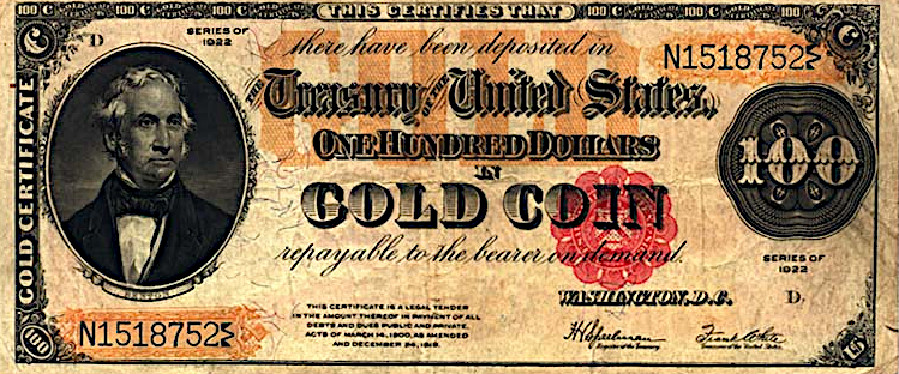
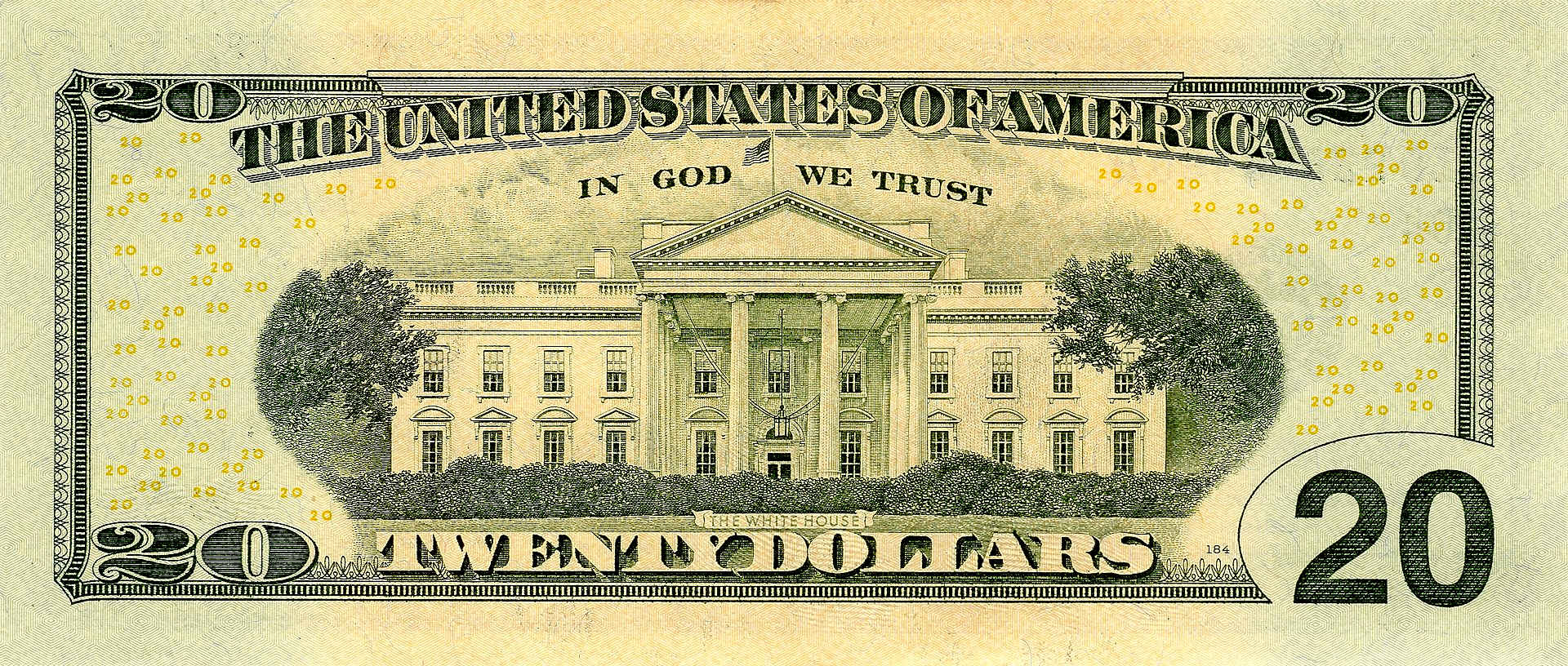
[LEFT]
"We have gold because we cannot trust governments," President Herbert Hoover famously said in 1933 in his statement to Franklin D. Roosevelt. The Emergency Banking Act, forced all Americans to convert their gold coins, bullion, and certificates into U.S. dollars, to stop the outflow of gold reserves during the Great Depression. The writing was on the wall, but nobody could read it.
[RIGHT] A
$20 dollar bill showing the White House on the reverse
|
-
|
-
|
-
|
-
|
|
1
|
George
Washington
|
1789 to 1797
|
Independent
|
|
2
|
John
Adams
|
1797 to 1801
|
Federalist
|
|
3
|
Thomas
Jefferson
|
1801 to 1809
|
Democratic-Republican
|
|
4
|
James
Madison
|
1809
to 1817
|
Democratic-Republican
|
|
5
|
James
Monroe
|
1817
to 1825
|
Democratic-Republican
|
|
6
|
John
Quincy Adams
|
1825
to 1829
|
Democratic-Republican
|
|
7
|
Andrew
Jackson
|
1829
to 1837 (attempted assas.)
|
Democratic
|
|
8
|
Martin
Van Buren
|
1837
to 1841
|
Democratic
|
|
9
|
William
H. Harrison
|
March 4 to April
4 1841
|
Whig
|
|
10
|
John
Tyler
|
1841
to 1845
|
Independent
|
|
11
|
James
K. Polk
|
1845
to 1849
|
Democratic
|
|
12
|
Zachary
Taylor
|
1849
to 1850
|
Whig
|
|
13
|
Millard
Fillmore
|
1850
to 1853
|
Whig
|
|
14
|
Franklin
Pierce
|
1853
to 1857
|
Democratic
|
|
15
|
James
Buchanan
|
1857
to 1861
|
Democratic
|
|
16
|
Abraham
Lincoln
|
1861 to 1865
(assassinated)
|
Republican
|
|
17
|
Andrew
Johnson
|
1865
to 1869
|
National
Union
|
|
18
|
Ulysses
S. Grant
|
1869
to 1877
|
Republican
|
|
19
|
Rutherford
B. Hayes
|
1877
to 1881
|
Republican
|
|
20
|
James
A. Garfield
|
1881
(assassinated)
|
Republican
|
|
21
|
Chester
A. Arthur
|
1881
to 1885
|
Republican
|
|
22
|
Grover
Cleveland
|
1885
to 1889
|
Democratic
|
|
23
|
Benjamin
Harrison
|
1889
to 1893
|
Republican
|
|
24
|
Grover
Cleveland
|
1893
to 1897
|
Democratic
|
|
25
|
William
McKinley
|
1897
to 1901 (assassinated)
|
Republican
|
|
26
|
Theodore
Roosevelt
|
1901
to 1909
|
Republican
|
|
27
|
William
H. Taft
|
1909
to 1913
|
Republican
|
|
28
|
Woodrow
Wilson
|
1913
to 1921
|
Democratic
|
|
29
|
Warren
G. Harding
|
1921
to 1923
|
Republican
|
|
30
|
Calvin
Coolidge
|
1923
to 1929
|
Republican
|
|
31
|
Herbert
Hoover
|
1929
to 1933
|
Republican
|
|
32
|
Franklin
D. Roosevelt
|
1933
to 1945
|
Democratic
|
|
33
|
Harry
S. Truman
|
1945
to 1953
|
Democratic
|
|
34
|
Dwight
D. Eisenhower
|
1953
to 1961
|
Republican
|
|
35
|
John
F. Kennedy
|
1961
to 1963 (assassinated)
|
Democratic
|
|
36
|
Lyndon
B. Johnson
|
1963
to 1969
|
Democratic
|
|
37
|
Richard
Nixon
|
1969
to 1974
|
Republican
|
|
38
|
Gerald
Ford
|
1974
to 1977
|
Republican
|
|
39
|
Jimmy
Carter
|
1977
to 1981
|
Democratic
|
|
40
|
Ronald
Reagan
|
1981
to 1989 (shot rib)
|
Republican
|
|
41
|
George
H. W. Bush
|
1989
to 1993
|
Republican
|
|
42
|
Bill
Clinton
|
1993
to 2001
|
Democratic
|
|
43
|
George
W. Bush
|
2001
to 2009
|
Republican
|
|
44
|
Barack
Obama
|
2009 to 2017
|
Democratic
|
|
45
|
Donald
Trump
|
2017 to 2021
(shot ear)
|
Republican
|
|
46
|
Joe
Biden
|
2021
- 2024
|
Democratic
|
|
47
|
Donald
Trump
|
2025
- (Harris v Trump)
|
Republican
|
WORLD
WAR THREE
In
the event of an international nuclear holocaust, World
War Three will wipe out the White House and most of Washington DC.
All that history gone. Unless, we do something to encapsulate and
preserve that heritage. Just in case a madman somewhere on planet
earth loses it, and pushes his big red button.
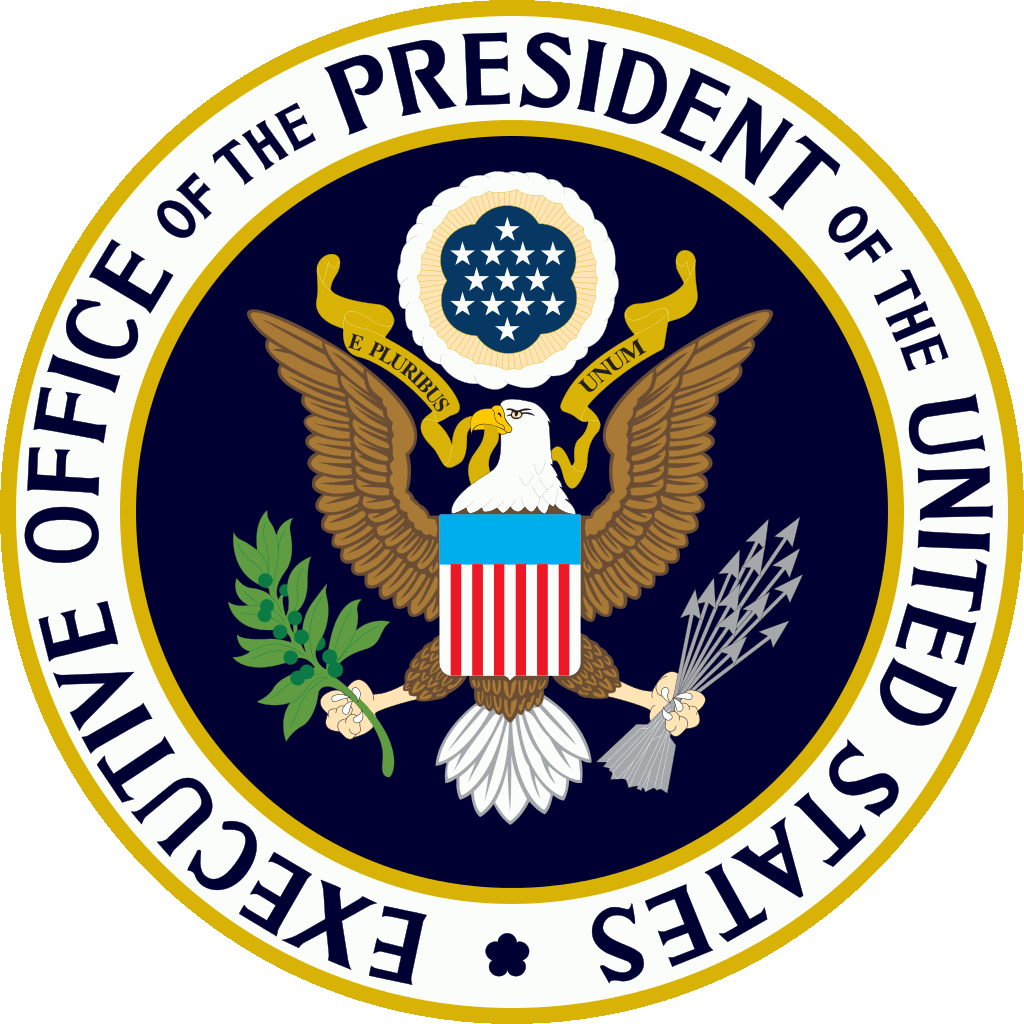
CHAPTERS
| CHARACTERS
| MEDIA
|
MOVIE REF |
SCREENPLAYS
|







